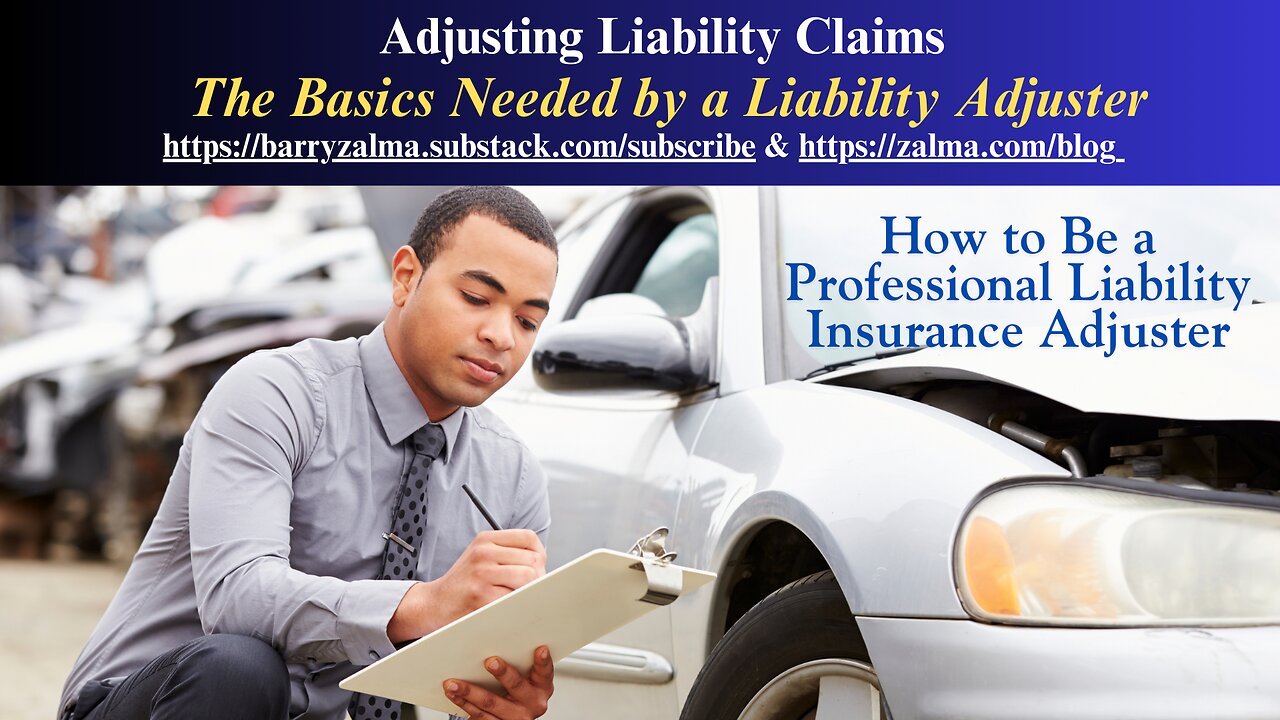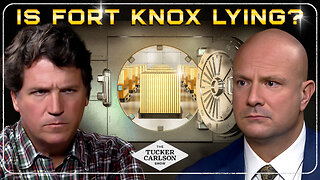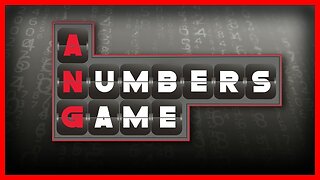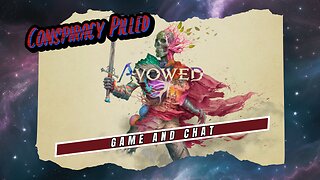Premium Only Content

Adjusting Liability Claims
The Basics Needed by a Liability Adjuster
Post 5003
Adjusting liability insurance claims requires skill, patience, knowledge of insurance, basic knowledge of tort and contract law, and knowledge and experience as an investigator. The liability claims adjuster is faced with the following basic obligations:
To understand the law of torts as applied in the state where the adjuster works.
To understand the law of contracts as applied in the state where the adjuster works.
To understand sufficient medical terminology to be able to evaluate claims of injury.
To understand the costs to repair or replace damaged real or personal property.
To understand how to read and apply the terms and conditions of a liability insurance policy.
To understand how to thoroughly investigate all claims assigned.
To conduct an investigation of every claim assigned fairly and in good faith with an intent to find coverage for the loss presented by the insured.
To understand how to analyze the insurance coverage and apply the facts established by the adjuster’s thorough investigation to the policy wording.
To be able to negotiate with claimants and lawyers to resolve bodily injury or property damage claims.
To pay promptly all claims the insurer owes under the contract.
To resist, and not pay, all claims the insurer does not owe under the contract of insurance.
The average new adjuster (a 22-year-old female graduate of a liberal arts college) has little or no training sufficient to allow her to fulfill the obligations required of every liability insurance adjusterz. Some modern insurance companies simply hire a person to be an adjuster, provide no training, and send them out to deal with the public with only the assistance of a claims supervisor who may only have two years-experience.
The liability claims adjuster quickly learns that there is little difficulty with a claimant (the person alleging bodily injury or property damage against a person insured) if the claim is paid as demanded. The insured may be unhappy if the claimant’s claim is paid as presented since most do not believe they did anything wrong or fear an increase in premiums charged for subsequent policies.
The adjuster must be prepared to salve the insured’s emotions, explain why in the law and the policy it was appropriate to pay the claimant and that the settlement is in the best interest of both the insured and the insurer the adjuster represents.
The adjuster knows, and must be prepared to explain to an insured, that if a claim is resisted or denied the claimant will be unhappy and will probably file suit. If not promptly settled the claimant’s lawyers will rake the insured over the coals to prove that the insured is liable for the claimant’s injuries. The litigation will take time, effort, and money to establish the extent of the injuries and who is responsible for the injuries. Failure to settle promptly can cost the insured his or her reputation and will certainly cost the insurer much more than the claim could have been resolved for had it been resolved before the claimant retained a lawyer.
The adjuster must also understand that investigation may establish that the insured is not responsible for the injuries claimed. Since most people would prefer not to be deposed by a claimant’s lawyer nor would they want to be cross-examined during a trial, it is the duty of the adjuster to explain to the insured the insured’s responsibility to assist in the defense of the eventual lawsuit. The duty to settle is not unlimited. It is also the obligation of the adjuster to prevent a claimant to take advantage of the insured and the insured’s insurer when investigation established that the insured is not responsible for the injuries claimed by the claimant.
The liability adjuster must also be knowledgeable about the fact that many liability claims are part of fraudulent schemes that are used by the unscrupulous to profit from fake accidents and injuries.
The best estimates the insurance industry has established is that insurance fraud takes more than $308 billion from the industry every year. Almost all of those less than legitimate claims are paid because:
The adjuster is untrained.
The adjuster is minimally trained.
The adjuster is either unable or unwilling to perform a thorough investigation.
The adjuster is so inexperienced that he or she does not know how to investigate.
The adjuster is unable to read a policy with comprehension, because
He or she has not been trained.
He or she has been trained inadequately.
He or she has no legal training and do not know the rules of contract interpretation.
The fraud perpetrator is intelligent, not greedy, and knowledgeable.
The insurer does not want to fight because legal costs to fight a fraud exceed the value of the claim.
The adjuster does not recognize the fraud.
The police authorities refuse to investigate, let alone, prosecute insurance fraud.
A thorough investigation of a claim must cover the duty the adjuster owes to the insured and the insurer. The liability claims investigation should never be limited to "holding the claimant down to what he asks for" or just giving a blank check to claimants. The adjuster’s obligation is to deal fairly and in good faith with the insured, the claimant, and the insurer.
(c) 2025 Barry Zalma & ClaimSchool, Inc.
Please tell your friends and colleagues about this blog and the videos and let them subscribe to the blog and the videos.
Subscribe to my substack at https://barryzalma.substack.com/subscribe
Go to X @bzalma; Go to Newsbreak.com https://www.newsbreak.com/@c/1653419?s=01; Go to Barry Zalma videos at Rumble.com at https://rumble.com/account/content?type=all; Go to Barry Zalma on YouTube- https://www.youtube.com/channel/UCysiZklEtxZsSF9DfC0Expg
Go to the Insurance Claims Library – https://lnkd.in/gwEYk
-
 2:00:34
2:00:34
Steven Crowder
3 hours ago🔴 False Reality: What Joy Reid's Firing Exposes About The Left
240K226 -
 1:34:39
1:34:39
Tucker Carlson
23 hours agoLuke Gromen: Why the CIA Doesn’t Want You Owning Gold, & Is Fort Knox Lying About Our Gold Reserve?
113K193 -
 1:03:56
1:03:56
Timcast
2 hours agoRachel Maddow SLAMS MSNBC As RACIST For Firing Joy Reid, Liberal Media HAS COLLAPSED | Timcast LIVE
50.9K44 -
 DVR
DVR
Bannons War Room
7 days agoWarRoom Live
1.73M339 -
 56:45
56:45
VSiNLive
2 hours ago $1.16 earnedA Numbers Game with Gill Alexander | Hour 1
10.2K2 -
 2:03:41
2:03:41
Matt Kohrs
10 hours agoMore Market Pain Incoming?! || The MK Show
102K2 -
 39:37
39:37
BonginoReport
6 hours agoCrybaby Crenshaw’s Latest Meltdown (Ep.147) - 02/25/2025
119K272 -
 2:59:15
2:59:15
Wendy Bell Radio
7 hours agoThe Party's Over
87K54 -
 45:46
45:46
Randi Hipper
2 hours agoBitcoin CRASHES to 3 month low! Crypto investors BEWARE
20K2 -
 LIVE
LIVE
Conspiracy Pilled
13 hours agoAvowed
87 watching